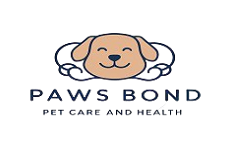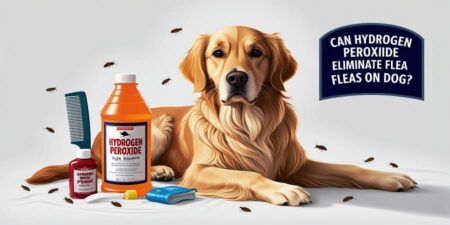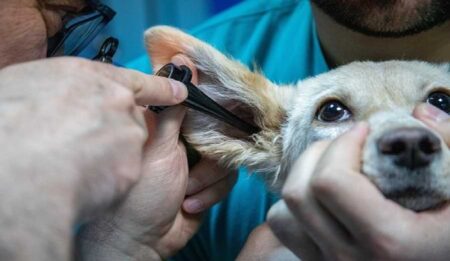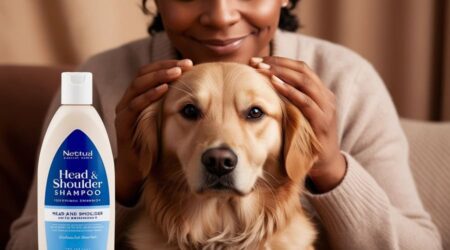Dog owners may observe behavioral changes in their pets, which raises concerns regarding any possible relationship between vaccination and behavioral changes. Vaccinating dogs against numerous infectious diseases is an essential part of being a good pet owner. Anecdotal evidence, however, indicates that some dogs might experience brief behavioral changes following immunization.. Although there hasn’t been much scientific study done on the subject, a number of things could influence behavioral changes. These could be the anxiety or pain of the injection procedure itself, the vaccine’s adverse effects, or the coincidence of the vaccination with other climatic or medical conditions. It is crucial for both veterinarians and pet owners to recognize these possible influences in order to distinguish between typical post-vaccination reactions and alarming behavioral changes that could need more assessment. Therefore, investigating the connection between vaccination and dog behavior can yield important information about how to best manage the general health and well-being of canine friends.
Understanding the Origin of Behavioral Changes
Determining the reason behind post-vaccination behavioral changes in dogs is essential to their welfare. Although vaccinations are essential for disease prevention, some dogs may feel a little uncomfortable or stressed during the process, which could cause short-term behavioral changes. Furthermore, vaccinations may trigger immunological reactions that include changes in appetite or tiredness. But it takes close observation and, if needed, veterinary advice to discern between typical responses and more worrisome behavioral changes. Understanding how vaccinations may affect behavior will help dog owner’s better support their health and take quick action when problems do develop.
What to Anticipate Following Your Dog’s Vaccinations
Mild Soreness: It’s possible for your dog to feel a little tender or uncomfortable where the injection was made, but this normally goes away in a day or two.
Lethargy: After vaccines, it’s normal for dogs to feel a little lethargic or less lively. It should become better in a day or two.
Reduced Appetite: After receiving vaccines, some dogs may have a brief loss of appetite or eat less than usual. To promote eating, present appetizing, easily digestible foods.
Behavioral Changes: Your dog may show subtle behavioral changes, including becoming more reclusive or clinging. Provide consolation and assurance.
Rare Side Effects: Severe reactions, such as fever or allergic reactions, are rare but can happen. If you experience any alarming symptoms, get in touch with your veterinarian right once.
What Causes Behavioral Changes to Occur?
Environmental Stressors:
Behavioral changes can be brought on by environmental changes, such as moving to a new house or being among loud noises.
Health Issues:
Behavior changes could be an indication of underlying physical issues such as discomfort, disease, or neurological disorders.
Changes in Routine:
Behavior can be impacted by changes to regular patterns, such as feeding times or exercise regimens.
Social Interactions:
Adverse encounters with people or other animals can cause behavioral abnormalities, such as hostility or fear.
Vaccination:
Temporary behavioral changes can be brought on by injection site pain, stress from the veterinary appointment, or moderate vaccine responses.
Is Vaccination Suitable for Your Dog?
If your dog is in need of a vaccination, you will need to consider a number of things, including their age, health, lifestyle, and likelihood of contracting an infectious disease. Generally speaking, vaccinations are crucial for protecting dogs from potentially fatal diseases and enhancing their general health. Individual factors, such as prior vaccination reactions or underlying medical issues, could, nevertheless, affect the immunization schedule. It is essential to consult a veterinarian in order to customize a vaccination plan that best suits your dog’s needs and provides maximum protection against infectious diseases while lowering the possibility of side effects or dangers.
Reasons to Vaccinate Your Dog
Protect your dog companion from serious illnesses
Make sure your dog has the necessary immunizations to protect them from serious infections. Vaccines are essential for protecting your dog’s health and ensuring a longer, happier life full of energy and well-being by preventing diseases like parvovirus, rabies, and distemper.
Secure a Longer, More Joyful Life for Your Pet
Make sure your pet has a long and happy life by putting their health first and getting regular medical care and shots. You offer the groundwork for a lifetime of joy, energy, and treasured moments with them by shielding them against avoidable diseases.
Support Herd Immunity Efforts
Vaccinating your pet helps create herd immunity, which is the immunity of the community as a whole. This contributes to the safety and well-being of all pets in your neighborhood by shielding vulnerable animals from harm and halting the spread of infectious diseases.
Find Peace of Mind for Yourself
Make peace of mind your top priority by getting your pet vaccinated. You may rest easy knowing that they are protected from diseases that could be avoided, so they can live a long and happy life with you.
Fulfill Your Responsibility as a Pet Owner
Make sure your animal friend has all the required shots to fulfill your responsibility as a pet owner. You can give them the best opportunity of living a long, healthy, and meaningful life while also protecting the health of other pets and the community by putting their health and well-being first.
Managing Vaccination: What You Need to Know
Understanding Vaccination Schedule:
Learn about your dog’s vaccination schedule, including which vaccinations are advised and when to administer them based on your dog’s age and condition.
Preparing for the Veterinary Visit:
Make sure your dog is relaxed and comfortable before their vaccination visit, and remember to bring any pertinent medical papers or paperwork.
Monitoring after Vaccination:
After vaccination, keep a careful watch on your dog for any indications of a reaction, such as fever, lethargy, or swelling where the shot was administered.
Seeking Veterinary Advice:
Please do not hesitate to call your veterinarian for advice and support if you have any questions or observe any strange symptoms after receiving a vaccination.
The Importance of Vaccines for Your Dog’s Health
Maintaining your dog’s health and wellbeing requires making sure they get their vaccinations. Dogs that receive vaccinations are shielded from potentially fatal illnesses like hepatitis, parvovirus, rabies, and distemper. In the case that exposure occurs, vaccinations lessen the severity of illnesses and aid in infection prevention by boosting the immune system’s production of antibodies against certain microorganisms. Additionally, vaccinations support herd immunity, which shields individual dogs as well as the larger pet population. All things considered, vaccinations are essential for protecting your dog’s health, extending its life, and giving you piece of mind as a pet owner.
Frequently Asked Questions
Why do dog behaviors change after vaccination?
A number of variables, including stress from the vet visit, pain at the injection site, or moderate responses to the vaccine itself, might cause a dog’s behavior to change following immunization.
What are common behavioral changes in dogs post-vaccination?
Lethargy, decreased appetite, and transient shifts in mood or activity level are examples of common behavioral changes.
Is it normal for dogs to feel lethargic after vaccination?
Absolutely, as their systems adjust to the immunization, some dogs may feel drowsy or less energetic after a day or two following inoculation.
Can stress during vaccination contribute to behavior changes?
In fact, dogs may exhibit transient behavioral changes as a result of stress related to their medical visit or discomfort during vaccinations.
How long do behavioral changes typically last after vaccination?
Following immunization, behavioral abnormalities are often transient and go away in a day or two.
Are certain vaccines more likely to cause behavior changes in dogs?
There is insufficient proof to conclude that some vaccinations increase the likelihood of behavioral abnormalities in dogs. However, each person’s response may differ.
What can I do to help my dog cope with behavioral changes after vaccination?
Creating a calm and cozy atmosphere, giving additional care and comfort, and making sure dogs have access to food, drink, and rest can all help them adjust to new behaviors following vaccinations.
Conclusion
Dogs who receive vaccinations frequently exhibit behavioral changes, which are usually caused by stress, discomfort, or moderate vaccine responses. Even though these changes are typically transient and go away on their own in a day or two, pet owners must keep a careful eye on their dogs and offer comfort and assistance when needed. Owners may guarantee the wellbeing of their pets during the post-vaccination phase by being aware of the possible reasons behind behavioral changes in their dogs and adopting proactive measures to assist them in adjusting. If any worries emerge, speaking with a veterinarian can also offer confidence and direction.








